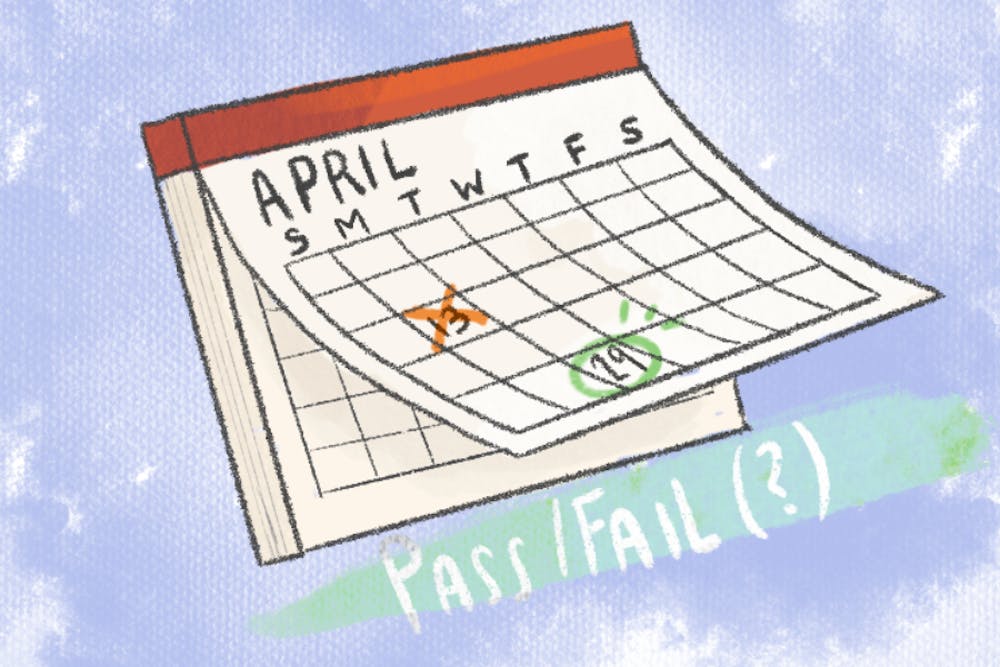
Provost Wendell Pritchett recently announced that the deadline to opt in to pass/fail grading for the spring semester will be extended from April 13 to April 29, the last day of classes this semester.
This decision occurred after a student–led petition to extend the deadline amassed over 3,500 signatures. Under the new policy, students can change grade types by entering the changes on PennInTouch by April 13 or by filling out a Petition for Change of Grading Option from April 14 to April 29.
While Penn’s decision to extend the opt–in deadline is helpful for students and should be commended, professors must aim to grade assignments promptly before April 29 for the extension to have any practical meaning.
Even with the extension, Penn’s opt–in deadline is still the earliest among Ivy League universities which have not moved to mandatory pass/fail grading: Brown University is requiring students to opt–in by May 1, while Princeton University and Cornell University have set May 12 as their opt-in deadline. Given the unprecedented circumstances of this semester, students should have the opportunity to know as many of their grades before April 29 as possible. This will allow them to make an informed decision about whether to take a class pass/fail or not.
In most courses, students already have several grades from assignments due earlier in the semester. However, many professors have assignments due between now and April 29, and some also have final exams, papers, or projects due April 29 or later. Because some professors often take over a week to grade assignments, some scores may not be available before the opt-in deadline. This poses significant challenges to students hoping to know what their letter grades will be when deciding whether to take classes pass/fail. To remedy this issue, professors should aim to grade assignments due before April 29 in advance of the deadline. For assignments due after April 29, professors could decrease their weight or offer to grade them earlier if students submit them in advance.
Even when students have grades for all the individual assignments in a class, they may still be uncertain about their final letter grades due to lack of transparency in assignment weighting, curves, and more nebulous factors like class participation. Professors can deal with this problem by establishing clear grade cutoffs in advance and even giving students an approximation of their final letter grade before April 29.
These changes will not be easy for all professors to implement, and they provide an extra burden for faculty who may already face significant disruptions to their daily lives. To facilitate the changes, professors should work with teaching assistants, and if that is not enough to provide grades before the deadline, they should implement policies like peer grading or other more relaxed grading methods. While this may not be ideal for some classes, the semester is already not ideal.
This is an unprecedented moment in history. Students, faculty, and administrators are feeling the social, economic, and health impacts of the coronavirus every day. However, if the University will not give students a universal pass/fail system like Yale or a later opt–in deadline like Princeton and Cornell, the burden falls on professors to grade differently so they can be as transparent as possible to their students about their grade by April 29. If professors do not shift their approach to grading before April 29, the decision to extend the opt-in deadline will not benefit students as much as it was intended.
Editorials represent the majority view of members of The Daily Pennsylvanian, Inc. Editorial Board, which meets regularly to discuss issues relevant to Penn's campus. Participants in these meetings are not involved in the reporting of articles on related topics.
The Daily Pennsylvanian is an independent, student-run newspaper. Please consider making a donation to support the coverage that shapes the University. Your generosity ensures a future of strong journalism at Penn.
Donate





